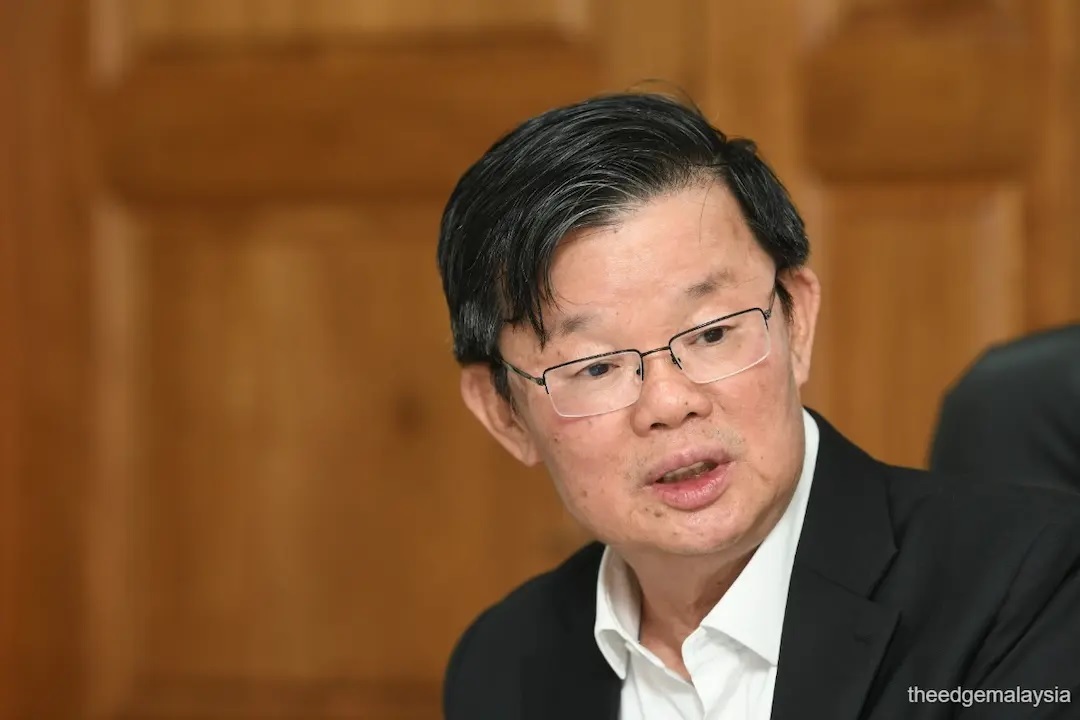
- Chief Minister Chow Kon Yeow: The amendment involves more than 210,000 land titles and 184,000 strata titles, which will be reclassified according to the new land status.
GEORGE TOWN (Sept 17): Penang has officially gazetted amendments to municipal boundaries, expanding the limits of 10 existing towns and creating 25 new towns across the state.
Chief Minister Chow Kon Yeow (pictured) said the decision was made through the Penang State Government Gazette dated Sept 4, 2025, in line with Sections 11(ca) and 11(d) of the National Land Code (Act 828).
“The amendment involves more than 210,000 land titles and 184,000 strata titles, which will be reclassified according to the new land status.
“This step is crucial to realign land classification throughout the state in tandem with the rapid pace of economic and social development in these areas,” he told a press conference at his office in Komtar here on Wednesday.
Following the gazettement, Penang now has a total of 42 towns—10 with expanded boundaries, 25 newly established towns and seven towns with unchanged boundaries.
Chow said the last gazettement of municipal boundaries was in 1966, and since then, many areas that were still designated as villages had grown rapidly, such as Bayan Baru, Bukit Jambul, Seberang Jaya, Bandar Perda, Bandar Cassia, Simpang Ampat, Telok Air Tawar and Bertam.
Based on the urban hierarchy, George Town remains designated as the state capital, while seven areas are classified as major towns: Balik Pulau, Batu Kawan-Cassia, Bayan Baru, Bukit Mertajam, Butterworth, Kepala Batas and Nibong Tebal.
“In addition, 31 other areas across the state have been gazetted as local towns, including Batu Ferringhi, Tanjong Bungah, Tanjung Pinang, Ayer Itam, Bayan Lepas, Bertam, Tasek Gelugor, Telok Air Tawar, Seberang Jaya, Prai, Simpang Ampat, Sungai Bakap, Juru and Jawi.
“According to PLANMalaysia (the Town and Country Planning Department of Penang), 11 criteria are used as the basis for town boundary demarcation, including population size, topography, environmentally sensitive areas, committed development and socio-economic potential.
“Through this boundary revision, the state government is confident of strengthening the land and tax management system to ensure more organised development,” he said.
The chief minister added that the amendments also involve changes to land tax and parcel tax rates, which will take effect from 2026 in line with the change in land status from rural to urban.
However, he said the state government had agreed to defer the implementation of new strata parcel tax rates affecting more than 184,000 titles until 2027 to ease the burden on property owners.
As Penang girds itself towards the last lap of its Penang2030 vision, check out how the residential segment is keeping pace in EdgeProp’s special report: PENANG Investing Towards 2030.





